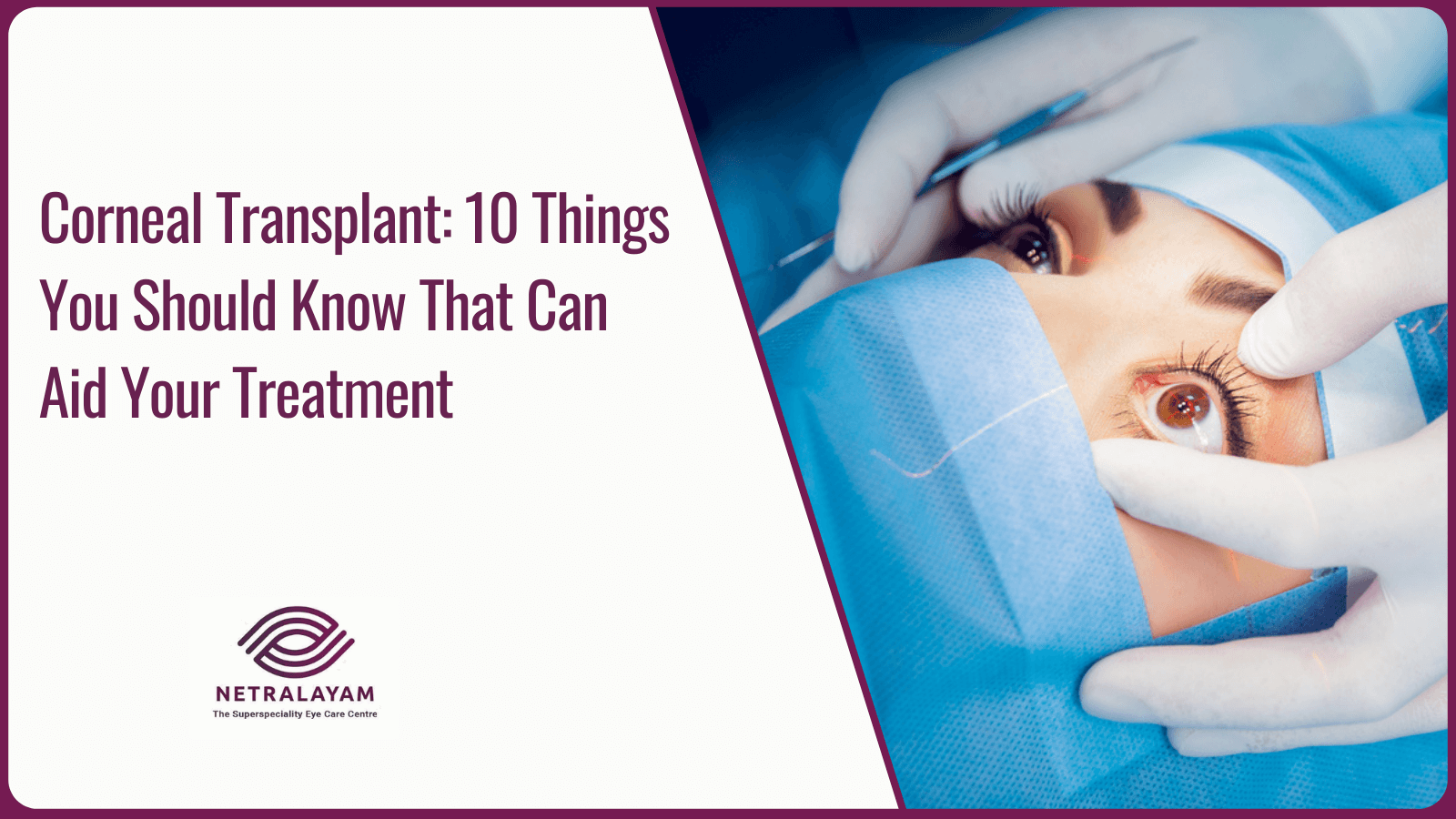Committed to Eye Care with Compassion, Technology and Competency
Committed to Eye Care with Compassion, Technology and Competency

4/26/2023
Corneal transplant surgery is a procedure that replaces a damaged cornea with a healthy one from a donor. In India, corneal blindness is a significant problem, with an estimated 6.8 million people requiring corneal transplants. However, the lack of awareness about the procedure and the shortage of corneal donors are major challenges. In this blog, we will answer ten common questions about corneal transplants to help you understand the procedure and make an informed decision.
A corneal transplant, also known as Keratoplasty, is a surgical procedure that replaces the damaged or diseased cornea with a healthy one from a donor. You may need a corneal transplant if your cornea has become swollen, scarred, or misshapen, causing vision problems.
The benefits of the corneal transplant are significant and it includes the following:
The surgery usually takes around one to two hours, and the recovery time can vary depending on several factors, such as the patient's age and overall health. It can take several months for the vision to stabilize, and complete recovery may take up to a year.
Most patients experience an improvement in their vision after the surgery. However, it can take several months for the vision to stabilise and it may take up to a year for complete recovery.
The success rate of corneal transplant surgery is generally high, with a success rate of around 90%. However, several factors can affect the outcome, such as the patient's age, the reason for the transplant, and the presence of underlying medical conditions.
After the surgery, you will need to follow up with your doctor regularly to monitor your progress and ensure that the transplant is healing correctly. The follow-up care can continue for up to a year.
Yes, you will need to take medications to prevent the rejection of the donor cornea. The medications may need to be taken for several months or even years after the surgery. Your doctor will prescribe the right medications according to your needs and condition.
Complications of corneal transplant surgery may include infection, bleeding, and rejection of the donor cornea. If complications occur, they can be treated with medications or, in severe cases, additional surgery.
The transplanted cornea can last for many years, and in some cases, it can last a lifetime. However, the lifespan of the transplant can vary depending on several factors, such as the patient's age, the reason for the transplant, and the presence of underlying medical conditions. To prolong the lifespan of the transplant, it is essential to follow the doctor's instructions carefully and attend all follow-up appointments.
Your doctor will provide you with specific instructions on what activities to avoid after the surgery. Generally, you should avoid any strenuous activities that could put pressure on your eyes or cause injury to the transplant. You should also avoid rubbing your eyes or exposing them to irritants such as dust or smoke.
Corneal transplant surgery can be a life-changing procedure for those suffering from corneal blindness. However, it is essential to understand the procedure's risks and benefits and to follow your doctor's instructions carefully to ensure the best possible outcome. If you are considering a corneal transplant, consult with a qualified cornea transplant specialist near you and choose a reputable eye care hospital.
Recovery time from a corneal transplant can vary but generally takes several months to a year.
After a corneal transplant, it is important to avoid rubbing your eye, lifting heavy objects, and engaging in strenuous activities for several weeks.
The time it takes to regain vision after a corneal transplant depends on the individual case, but it can take several weeks to several months.
Driving after a corneal transplant should only be considered once your vision has stabilized, and your doctor has given you clearance to do so, which can take several weeks to a few months.
If you are looking for a cornea transplant specialist near you, Netralyam – The Super Specialty Eye Care Centre in Kolkata could be one of the best options for you. We offer advanced treatments for various eye conditions, including corneal transplants. The corneal transplant cost in Kolkata can vary depending on several factors, such as the hospital, the surgeon's experience, and the type of procedure. However, at Netralyam, we are committed to offering affordable and transparent pricing for all our services. We also accept most insurances, so fix an appointment today to get started with your corneal correction.
Comments are closed
